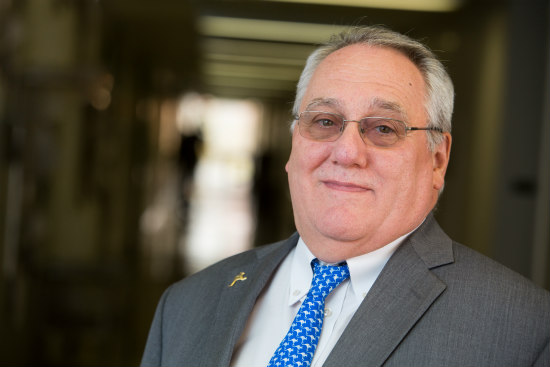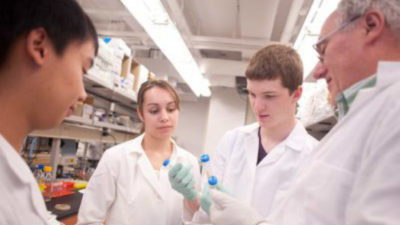3 questions with the biology dean about his team’s discovery
Ted White, dean of the University of Missouri-Kansas City School of Biological Sciences, is internationally recognized for his three decades of work on disease-causing fungi. For the past 15 years, he has been studying dermatophytes or what we mere mortals call skin fungi.
The dermatophyte he and his colleagues wrote a paper about for the journal Genetics is spreading through the news cycle like the seemingly unstoppable fungi itself. So far, White’s research has been featured in Newsweek and BBC News.
Why is the discovery that Trichophyton rubrum isn’t sexually reproducing such good news?
This is the fungi responsible for toenail infections and athlete’s foot. We spend over half a billion dollars each year on treating these infections. The lack of sex could be good news for people who want to develop new drugs or vaccines to stop it.

UMKC School of Biological Sciences Dean Ted White | Photo by Brandon Parigo, Strategic Marketing and Communications
How do you explain the whole sex thing with fungus?
The fungus has learned to live on humans, where it is warm and well-fed. And it can reproduce by cloning so it can keep making more of itself. It doesn’t need a lot of genetic variety, and so it has lost its ability to mate, which is how it usually creates diversity.
If the fungus were sexually active, mating would create genetic variation that would make it harder to treat these infections.
People say athlete’s foot is hard treat as it is. So how can we destroy this fungus?
Over-the-counter drugs like creams and powders do control the outbreak and reduce fungus, but they don’t get rid of it. The fungus is still sitting there on their foot or in their shower stall. But, because this fungus is clonal in nature, it has less variation. That means that developing a new drug or even a vaccine would be easier to do. But we still have a lot of work to do to develop a new treatment or vaccine.
UMKC faculty are experts in their fields and gain international attention for their research.
>UMKC researcher contributed to Nobel Prize project
>Pain, Pills, Problems: Q & A with a pharmacy professor about the opioid crisis
>Could light be the key to fewer needles for diabetics?

